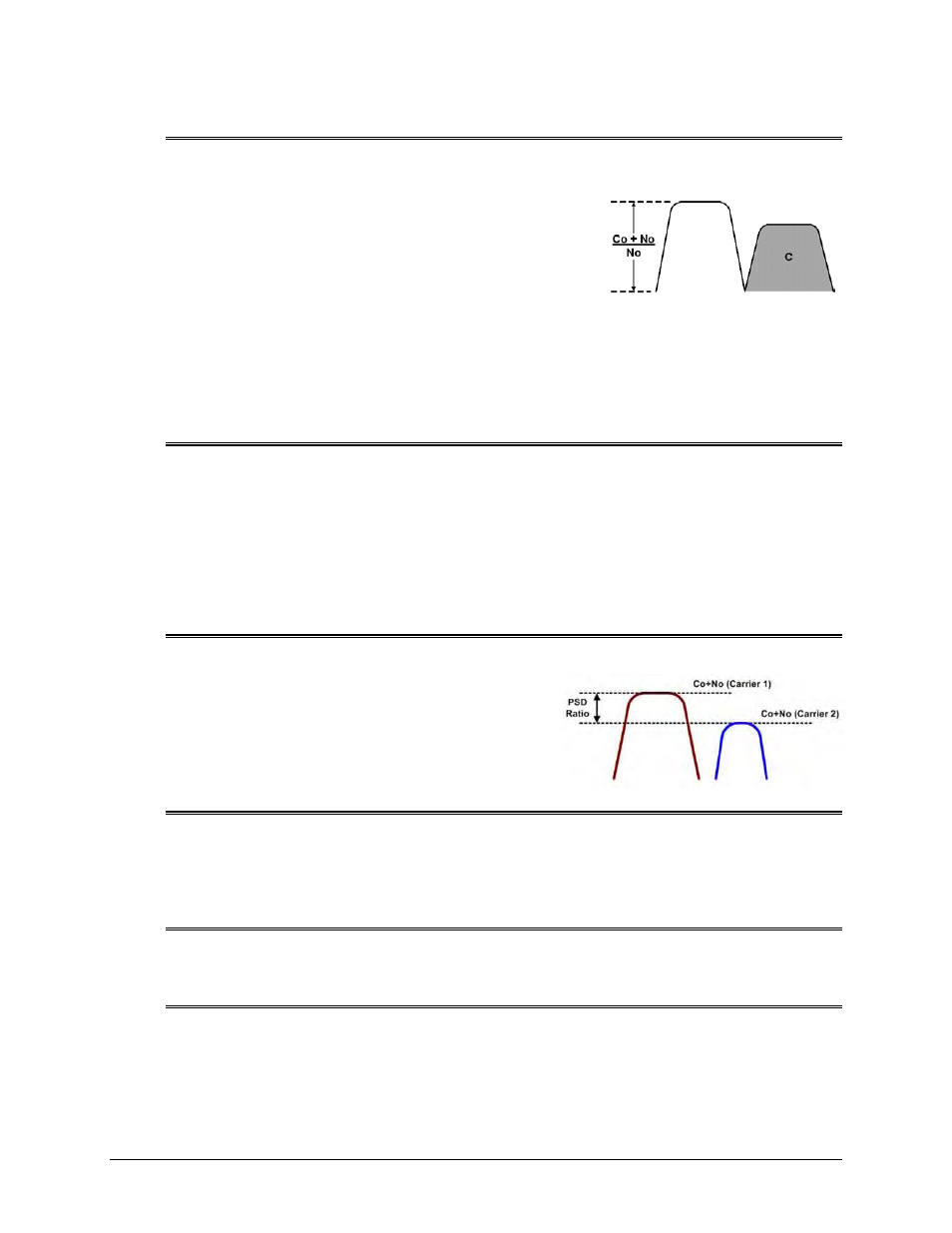Co+no/no, Power spectral density (psd), Psd ratio – Comtech EF Data CDM-625 User Manual
Page 361: Quasi error free (qef), Spectral efficiency (se), Symbol rate & data rate

CDM-625 Advanced Satellite Modem
Revision 15
DoubleTalk
Carrier-in-Carrier Option
MN-CDM625
10–31
Co+No/No
Ratio of Carrier Density (C
o
) + Noise (N
o
) to Noise Density (N
o
) (unit in dB):
C/N = C/N
o
– 10log(B) [where B is bandwidth in Hz]
E
b
/N
o
= C/N
o
– 10log(DR) [where DR is data rate in bits/sec]
= C/N + 10log(B) – 10log(DR)
= C/N – 10log(SE) [where SE is Spectral Efficiency]
E
b
/N
o
= 10log (10
((Co+No/No)/10)
– 1) – 10log(SE) [where SE is Spectral Efficiency]
[Note: Spectral Efficiency is in bps / Hz]
Power Spectral Density (PSD)
Power Spectral Density (PSD) is the signal power per unit bandwidth: dBW / Hz or dBm / Hz
For example:
Signal power = 20 dBm
Signal bandwidth = 5 MHz
PSD = 20 – 10 *log (5,000,000) = -46.99 dBm / Hz
PSD Ratio
Ratio of Power Spectral Density (PSD) of the interfering carrier to the desired carrier.
If looking at the two carriers side-by-side on a spectrum
analyzer:
Quasi Error Free (QEF)
Quasi Error Free (QEF) corresponds to PER ~10
-7
[Note: PER (packet error rate) is based upon a 188-byte MPEG frame size]
Spectral Efficiency (SE)
Ratio of the Data Rate to the Symbol Rate.
Symbol Rate & Data Rate
Symbol Rate and Data Rate are related:
• DR = SR * SE [Data Rate = Symbol Rate * Spectral Efficiency]
• SR = DR / SE [Symbol Rate = Data Rate / Spectral Efficiency]
